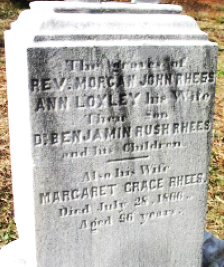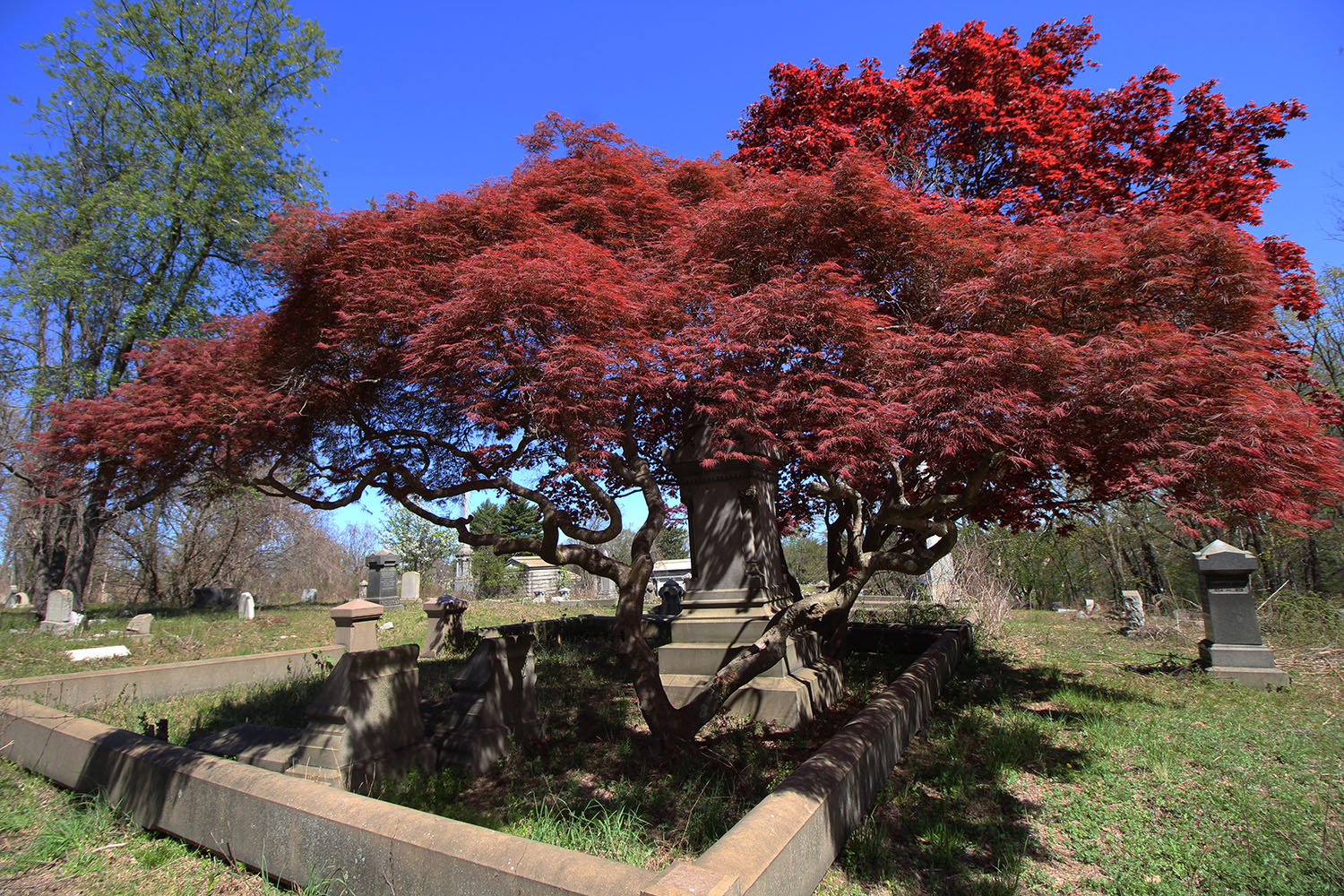Title: Baptist preacher, political activist
Birthdate: December 8, 1760
Death Date: December 7, 1804
Plot Location: Section 112, First Baptist Church plot

The following is from Sidney Lee, editor, Dictionary of National Biography, Volume XLIII, 1896, p. 82. The original Welsh spelling of the surname was Rhys, but Morgan changed it to Rhees when he came to America. Although he was buried on the grounds of the First Baptist Church of Philadelphia, he had not been a pastor there, but spent most of his ten years in this country as an itinerant preacher.
* * *
Morgan John Rhees (1760-1804), was born in Glamorganshire [Wales] on 8 December, 1760. Although his parents were in humble circumstances, he was well educated, and became a teacher. Joining the Baptist Church, he determined to be a minister and, after studying at a Baptist college at Bristol [England], was appointed to the charge of the Baptist chapel at Peny-garn, Monmouthshire.
While there he gained an equal notoriety as a preacher and politician, and so keenly did he sympathize with revolutionary opinions that on the outbreak of the French Revolution in 1789 he resigned his charge and went to Paris. In a few months he was again in Wales, disappointed with the French revolutionary leaders, but more zealous than ever in upholding his own political opinions.
About the beginning of 1790 he founded the quarterly Welsh Treasury, through which he attacked the English ministry, and became one of the most notorious political leaders in Wales. By and by he was threatened with prosecution and, after consultation with his friends, he resolved to go to America and there find a suitable situation for the founding of a colony of Welsh malcontents.
He landed in February, 1794 and was received by Dr. Rogers of the University of Pennsylvania. [William Rogers was previously a chaplain during the Revolutionary War and pastor at First Baptist Church of Philadelphia.]
He traveled over the southern and western states, preaching as he went, and after engaging in ministerial work for two years in Philadelphia, he purchased a large tract of land in Pennsylvania, to which he gave the name Cambria, and upon it founded a town called Beulah. Here he settled in 1798, opened a church, and attracted Welsh immigrants.
But American conditions failed to kindle his political enthusiasm, and his fame there is solely owing to his powers as a preacher. Shortly before his death he removed to Somerset, Somerset County, where he died.
He was survived by a widow [Ann], the daughter of Colonel Benjamin Loxley of Philadelphia, and five children. He wrote some hymns in Welsh, but few of them have been translated. Shortly before his death he published in America a selection of his Orations and Discourses.
* * *
 Postscript: This newspaper obituary from 1804 shows that the preacher/politician held a few offices in local government, among them being clerk of court and county registrar.
Postscript: This newspaper obituary from 1804 shows that the preacher/politician held a few offices in local government, among them being clerk of court and county registrar.
One of his sons, Benjamin Rush Rhees (1798-1831) was named after his father’s friend who sold him the land in western Pennsylvania. Dr. Benjamin Rush was a signer of the Declaration of Independence, member of the Continental Congress, controversial activist, and prolific writer. Benjamin Rhees graduated from the University of Pennsylvania’s medical school and was one of the founders and first faculty members of Jefferson Medical College. He and his wife and children are also buried here.

Support the Friends of Mount Moriah
Help us in our mission to restore and maintain the beautiful Mount Moriah Cemetery by donating to our cause or volunteering at one of our clean-up events.

